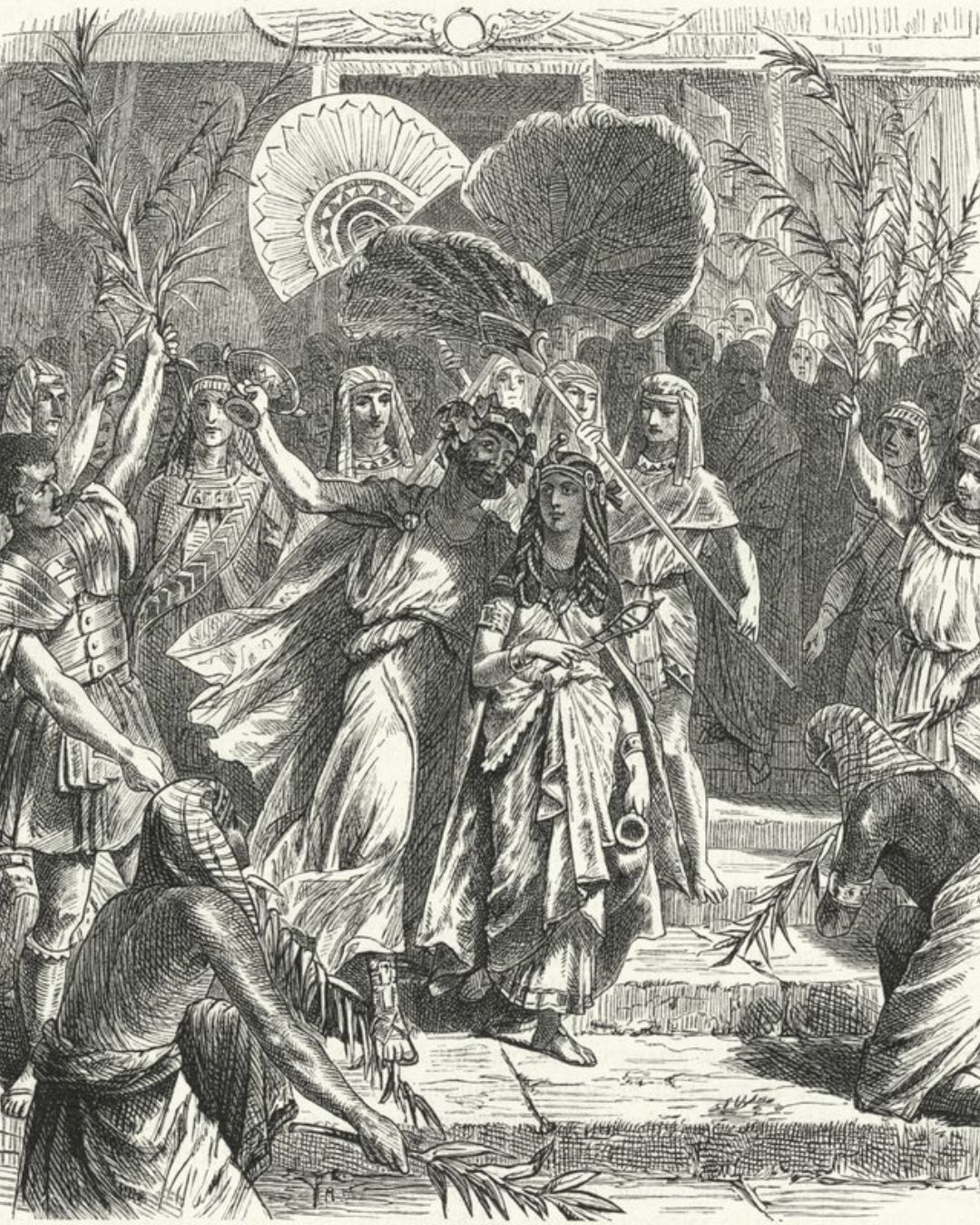
In art and ritual, queens have long fashioned themselves as more than rulers. They appear as deities, intermediaries between mortal and divine, shaping their own image as carefully as any sculptor carves stone. Few understood this power of metamorphosis more completely than Cleopatra VII. To govern Egypt and confront Rome, she needed more than armies — she required immortality, performed and inscribed in ritual and image.
Step into the temple at Dendera, where her likeness endures. Cleopatra appears not as a devotee before Isis, but as Isis herself: profile carved with vulture headdress, hands outstretched to pour libations, gestures that speak in a language beyond words. She does not imitate divinity. She embodies it.

This was not performance. It was metamorphosis.
During the festivals of Isis, the people of Alexandria saw not their queen in procession, but the goddess who wept the Nile into flood, who resurrected Osiris, who proved that death was never final. Inscriptions named her Nea Isis — the New Isis — and they did so with liturgical precision.
But when Rome became her audience, Cleopatra shifted. The headdress disappeared. The oils were exchanged for rosewater and jasmine. She appeared as Aphrodite, goddess of beauty sharpened into strategy.
At Tarsus, reclining beneath a golden canopy on her perfumed barge, she did not arrive as supplicant. She arrived as deity calling deity — Aphrodite to Dionysus, goddess to god across the water. Rome understood this language too, calling her not Aphrodite but Venus Genetrix, ancestral mother of dynasties. By adopting this mask, Cleopatra did not simply seduce Caesar or Antony; she declared herself their divine equal.
Neither guise was vanity. Both were weapons. As Isis, she commanded devotion in Egypt. As Aphrodite, she spoke Rome’s idiom of power draped in beauty, seduction masked as statecraft.
At 39BC, this inheritance is distilled into ritual once more. Denarii, a fine-fragrance shower oil, evokes Antony’s return to Cleopatra: frankincense, black pepper, patchouli, and balsams layered into a composition that lingers like memory after smoke.
Because scent, like history, is never just surface. It is transformation. It is signal. It is legacy carried on the skin.
Step into Denarii. Step into power.
